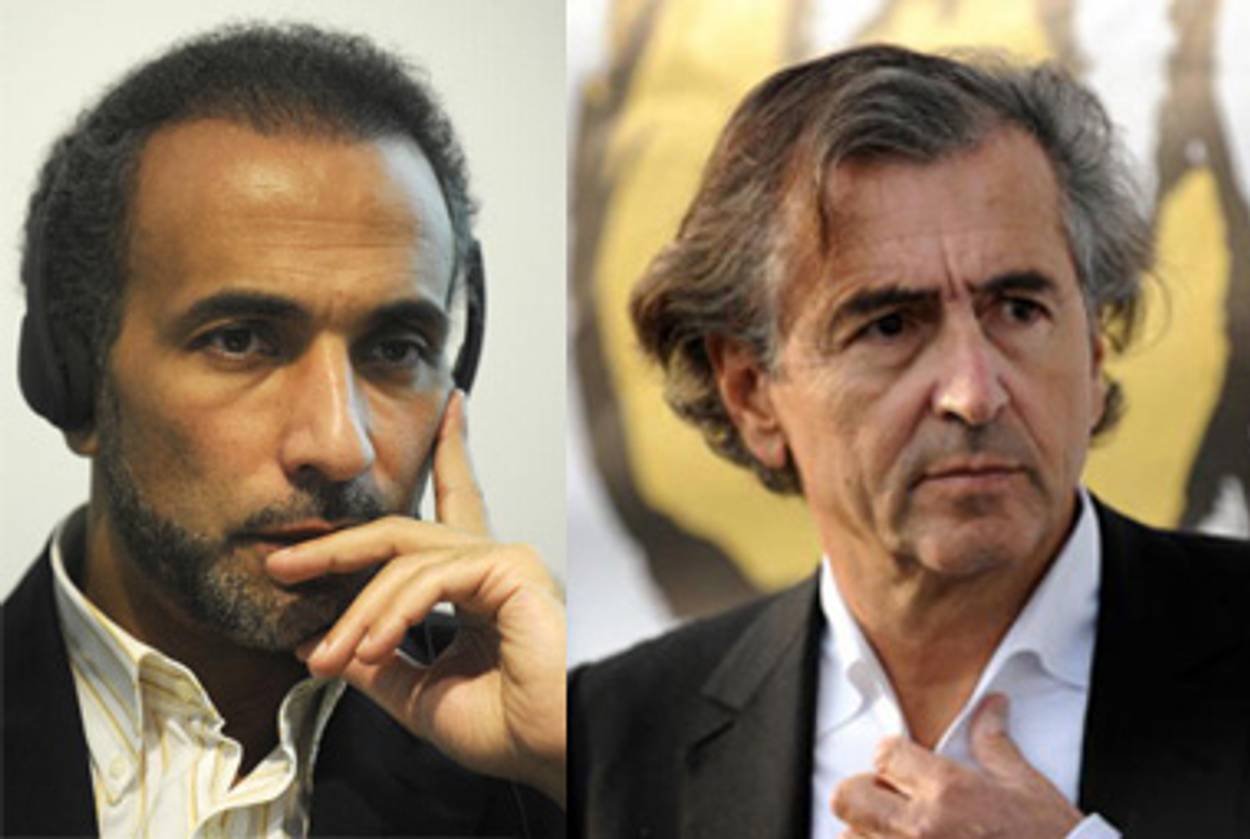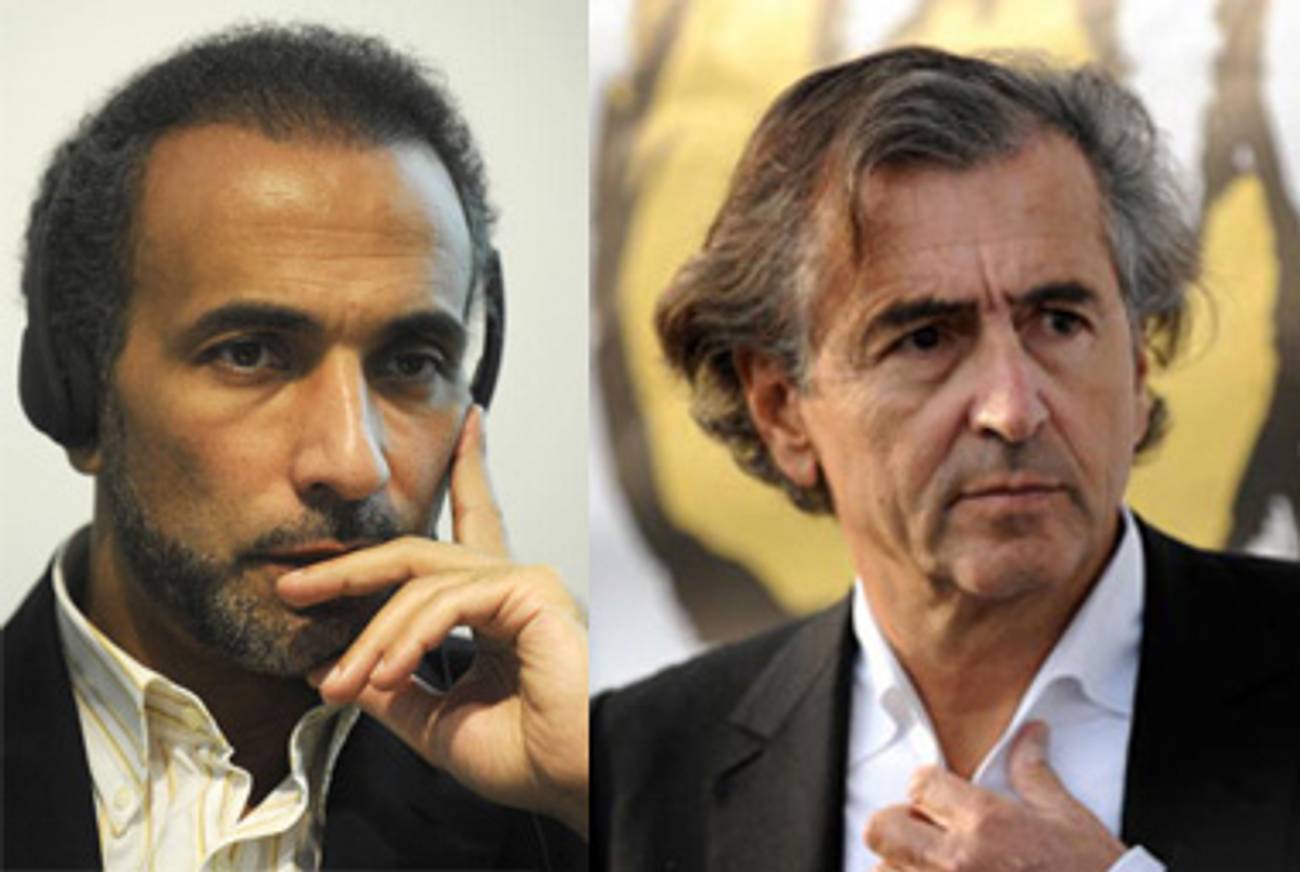Ramadan and Lévy: Separated At Birth?
Mirror images at odds




Two months ago, Columbia University rolled out the red carpet for French Jewish public intellectual Bernard-Henri Lévy when he headlined a panel discussion on secularism, Islam, and democracy in the West. Lévy asserted the need for Muslims to respect the Enlightenment value of free expression—including the freedom of Westerners, like the notorious Danish cartoonists of 2005, to criticize Islam without fear of censure or violence. Wearing his trademark spiffy, half-buttoned white Charvet shirt and blazer, fielding questions in his charming European accent from New Yorker editor David Remnick and flaking for the Intentional League Against Racism and Anti-Semitism (the French Anti-Defamation League), which cosponsored his talk, Lévy, to my ears, was an entertaining but ultimately unbearable, grandstanding prig, and I said as much.
Last night, Swiss Muslim public intellectual Tariq Ramadan was welcomed with even greater fanfare—having been barred from America by the Bush administration, this was his first trip to the U.S. in six years—to Cooper Union (over 100 blocks down from Columbia!) to headline a panel called “Secularism, Islam, and Democracy: Muslims in Europe and the West.” Ramadan asserted the need for the U.S. and Europe to respect the Enlightenment value of free expression—including the freedom of Muslims like himself to criticize the West without fear of censure or violence. Wearing his trademark spiffy white shirt and blazer, no tie, most buttons buttoned, fielding questions in his charming European accent from New Yorker staff writer George Packer and flaking for the American Civil Liberties Union, which cosponsored his talk, Ramadan was … well, you get the idea.
Lévy and Ramadan hate each other. They feuded after Ramadan published an article in 2003 accusing Lévy and other French-Jewish intellectuals of selling out their political consciences for Israeli interests when they supported the Iraq War. I would like to propose that this is a classic case of sibling rivalry—classic even in the Freudian sense—as the two, as though separated at birth, compete for the love and legacy of the same father. Both men make fairly obvious points about the necessity of upholding “European values” despite the challenges of Muslim emigration to the West, and both give themselves massive credit for doing so. BHL believes Islam thus far has not shown itself to be compatible with these values, but offers prayers for a reformist Muslim intellectual to come along and resolve the clash of civilizations; Ramadan believes Islam is compatible with these values, and that he is the intellectual of BHL’s dreams. Oh Father Enlightenment, who is your favorite son?
Ari M. Brostoff is Culture Editor at Jewish Currents.